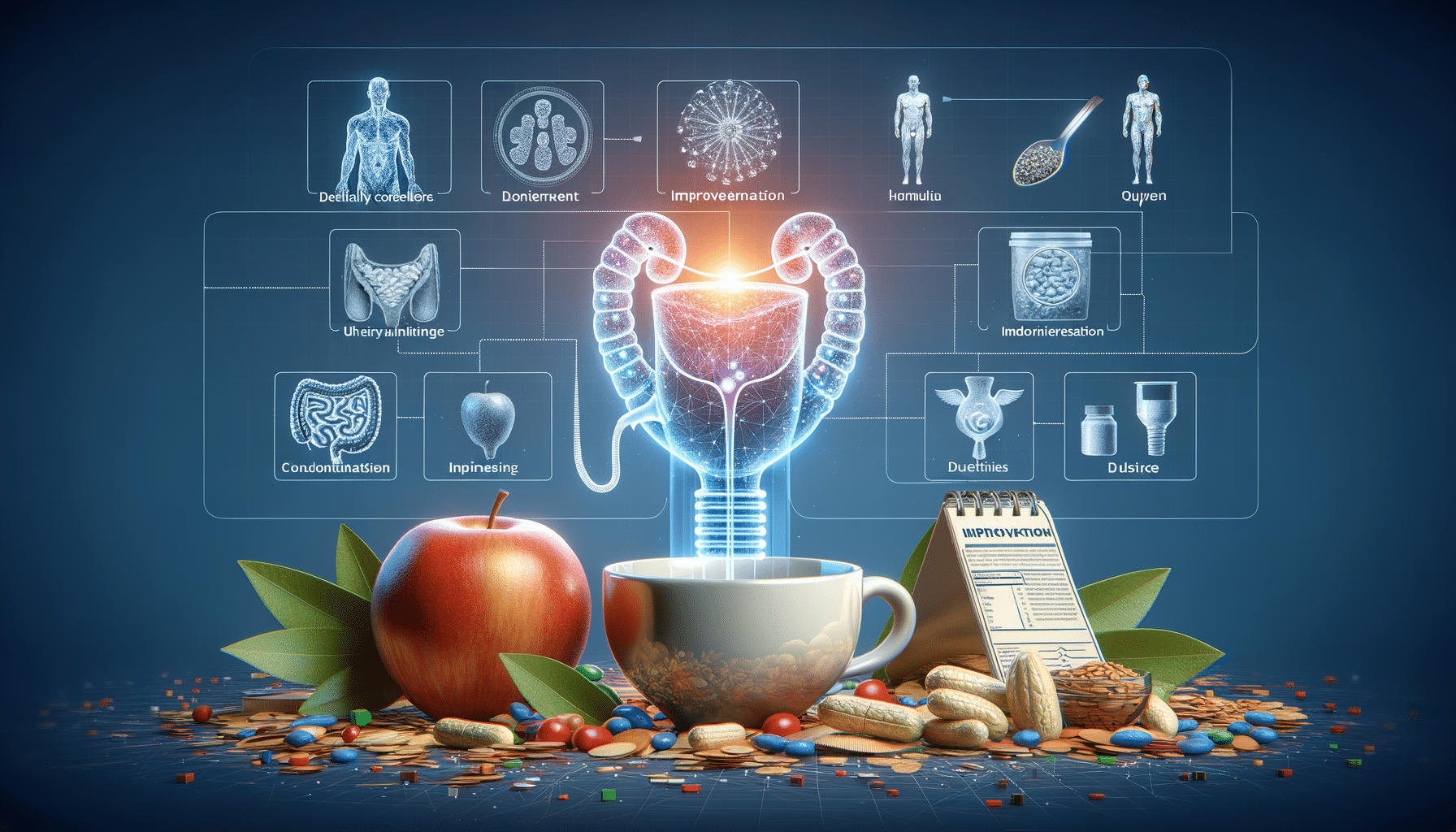
Urinary incontinence improvement plan and dietary considerations
Understanding Urinary Incontinence
Urinary incontinence, a condition characterized by the involuntary leakage of urine, affects millions of people worldwide. It is particularly prevalent among older adults and can significantly impact one’s quality of life. Understanding the causes and types of urinary incontinence is the first step towards managing it effectively. Common causes include weak pelvic floor muscles, nerve damage, and certain medications. There are several types of urinary incontinence, including stress incontinence, urge incontinence, and overflow incontinence. Each type has distinct characteristics and requires tailored management strategies.
Natural Remedies and Exercises
Incorporating natural remedies and exercises into your routine can greatly improve symptoms of urinary incontinence. Pelvic floor exercises, commonly known as Kegel exercises, are highly recommended. These exercises strengthen the pelvic floor muscles, providing better control over urination. Additionally, bladder training can be effective. This involves scheduling bathroom visits and gradually increasing intervals between them. Herbal remedies, such as pumpkin seed extract and horsetail, have shown promise in reducing symptoms, although consulting with a healthcare provider before starting any new treatment is advisable.
Lifestyle Changes for Better Management
Adopting certain lifestyle changes can also play a crucial role in managing urinary incontinence. Maintaining a healthy weight is important, as excess weight can put additional pressure on the bladder. Quitting smoking is beneficial, as smoking can irritate the bladder and exacerbate symptoms. Reducing caffeine and alcohol intake can also help, as these substances can increase urine production and irritate the bladder. Staying hydrated is essential, but it is important to avoid excessive fluid intake, which can lead to increased urinary urgency.
Dietary Considerations and Avoiding Triggers
Diet plays a significant role in managing urinary incontinence. Certain foods and beverages can irritate the bladder and should be avoided. For instance, acidic citrus fruits like oranges and grapefruits can exacerbate symptoms. Spicy foods, artificial sweeteners, and carbonated drinks are other common triggers. Instead, focus on a balanced diet rich in fiber to prevent constipation, which can worsen incontinence. Whole grains, fruits, and vegetables are excellent choices. Additionally, staying hydrated with water is crucial, but it’s important to monitor intake and avoid drinking large amounts at once.
Seeking Professional Help and Support
While lifestyle changes and natural remedies can be effective, seeking professional help is often necessary for managing urinary incontinence. A healthcare provider can offer a comprehensive evaluation and recommend appropriate treatments, which may include medications or surgical options. Support groups and counseling can also be beneficial, as they provide a platform to share experiences and coping strategies. Remember, urinary incontinence is a common condition, and seeking help is a positive step towards improving quality of life.


